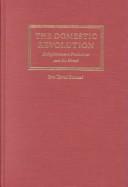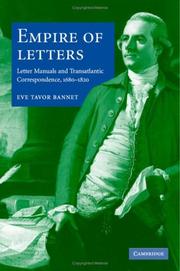| Listing 1 - 10 of 16 | << page >> |
Sort by
|
Book
ISBN: 0333469488 Year: 1989 Publisher: Basingstoke Macmillan
Abstract | Keywords | Export | Availability | Bookmark
 Loading...
Loading...Choose an application
- Reference Manager
- EndNote
- RefWorks (Direct export to RefWorks)
Book
ISBN: 0333584562 Year: 1993 Publisher: Basingstoke Macmillan
Abstract | Keywords | Export | Availability | Bookmark
 Loading...
Loading...Choose an application
- Reference Manager
- EndNote
- RefWorks (Direct export to RefWorks)
Literature --- marxisme
Book
ISBN: 0252015894 0252060458 Year: 1989 Publisher: Urbana University of Illinois press
Abstract | Keywords | Export | Availability | Bookmark
 Loading...
Loading...Choose an application
- Reference Manager
- EndNote
- RefWorks (Direct export to RefWorks)
Structuralism (Literary analysis) --- Literature --- Semiotics and literature --- Marxist criticism --- Alienation (Social psychology) in literature --- Structuralisme (Analyse littéraire) --- Littérature --- Sémiotique et littérature --- Critique marxiste --- Aliénation (Psychologie sociale) dans la littérature --- Philosophy --- Philosophie --- -Marxist criticism --- Literature, Comparative --- -Literature and semiotics --- Criticism, Marxist --- Marxian criticism --- Marxist literary criticism --- Communism and literature --- Communist aesthetics --- Criticism --- Belles-lettres --- Western literature (Western countries) --- World literature --- Philology --- Authors --- Authorship --- Semiotics --- Comparative literature --- Themes, motives --- History and criticism --- -Philosophy --- Structuralisme (Analyse littéraire) --- Littérature --- Sémiotique et littérature --- Aliénation (Psychologie sociale) dans la littérature --- Literature and semiotics --- Literature and philosophy --- Philosophy and literature --- Plots (Drama, novel, etc.) --- Theory

ISBN: 0801864178 Year: 2000 Publisher: Baltimore The Johns Hopkins University Press
Abstract | Keywords | Export | Availability | Bookmark
 Loading...
Loading...Choose an application
- Reference Manager
- EndNote
- RefWorks (Direct export to RefWorks)
Domestic fiction, English --- English fiction --- English prose literature --- Enlightenment. --- Families in literature. --- Feminism and literature --- Feminist fiction, English --- Literature and society --- Politics and literature --- Women and literature --- History and criticism. --- Women authors --- History and criticism --- History --- Fiction --- Sociology of minorities --- Thematology --- Sociology of the family. Sociology of sexuality --- anno 1700-1799 --- Great Britain --- Feminism --- Gender roles --- Literature --- Writers --- Enlightenment --- Images of women --- Book --- Empowerment
Book
ISBN: 9780511801976 9781107007468 9781107425439 9781139078795 1139078798 1283112833 9781283112833 1107007461 9781139081061 1139081063 1139064045 1107221757 1139076515 9786613112835 0511801971 1139083333 1139070797 1107425433 Year: 2011 Publisher: Cambridge New York Cambridge University Press
Abstract | Keywords | Export | Availability | Bookmark
 Loading...
Loading...Choose an application
- Reference Manager
- EndNote
- RefWorks (Direct export to RefWorks)
"Eve Tavor Bannet explores some of the remarkable stories about the Atlantic world that shaped Britons' and Americans' perceptions of that world. These stories about women, servants, the poor and the dispossessed were frequently rewritten or reframed by editors and printers in America and Britain for changing audiences, times and circumstances. Bannet shows how they were read by examining what contemporaries said about them and did with them; in doing so, she reveals the creatively dynamic and unstable character of transatlantic print culture. Stories include the 'other' Robinson Crusoe and works by Penelope Aubin, Rowlandson, Chetwood, Tyler, Kimber, Richardson, Gronniosaw, Equiano, Cugoano Marrant, Samson Occom, Mackenzie and Pratt"--
English literature --- American literature --- Comparative literature --- Books and reading --- Liberty in literature. --- Publishers and publishing --- Adventure stories, English --- Book publishing --- Books --- Book industries and trade --- Booksellers and bookselling --- Freedom in literature --- Liberty as a theme in literature --- Appraisal of books --- Choice of books --- Evaluation of literature --- Literature --- Reading, Choice of --- Reading and books --- Reading habits --- Reading public --- Reading --- Reading interests --- Reading promotion --- Appreciation --- English and American. --- American and English. --- History --- History and criticism. --- Publishing --- Appraisal --- Evaluation --- Atlantic Ocean Region --- Atlantic Area --- Atlantic Region --- In literature. --- Description and travel. --- Arts and Humanities
Book
ISBN: 131651885X 1009008536 1009003690 1009007769 Year: 2022 Publisher: Cambridge : Cambridge University Press,
Abstract | Keywords | Export | Availability | Bookmark
 Loading...
Loading...Choose an application
- Reference Manager
- EndNote
- RefWorks (Direct export to RefWorks)
The long tradition of mixta-genera fiction, particularly favoured by women novelists, which combined fully-transcribed letters and third-person narrative has been largely overlooked in literary criticism. Working with recognized formal conventions and typical thematic concerns, Tavor Bannet demonstrates how narrative-epistolary novels opposed the real, situated, transactional and instrumental character of letters, with their multi-lateral relationships and temporally shifting readings, to merely documentary uses of letters in history and law. Analyzing issues of reading and misreading, knowledge and ignorance, communication and credulity, this study investigates how novelists adapted familiar romance plots centred on mysteries of identity to test the viability of empiricism's new culture of fact and challenge positivism's later all-pervading regime of truth. Close reading of narrative-epistolary novels by authors ranging from Aphra Behn and Charlotte Lennox to Frances Burney and Wilkie Collins tracks transgenerational debates, bringing to light both what Victorians took from their eighteenth-century forbears and what they changed.
Epistolary fiction, English --- English fiction --- Narration (Rhetoric) --- History and criticism. --- Women authors --- History. --- Rhetoric --- Discourse analysis, Narrative --- Narratees (Rhetoric)
Book
ISBN: 9781009003698 9781316518854 9781009001823 Year: 2022 Publisher: Cambridge Cambridge University Press
Abstract | Keywords | Export | Availability | Bookmark
 Loading...
Loading...Choose an application
- Reference Manager
- EndNote
- RefWorks (Direct export to RefWorks)

ISBN: 9780521856188 Year: 2005 Publisher: Cambridge Cambridge university press
Abstract | Keywords | Export | Availability | Bookmark
 Loading...
Loading...Choose an application
- Reference Manager
- EndNote
- RefWorks (Direct export to RefWorks)
Among the most frequently reprinted books of the long eighteenth century, English, Scottish and American letter manuals spread norms of polite conduct and communication, which helped to connect and unify different regions of the British Atlantic world, even as they fostered and helped to create very different local and regional cultures and values. By teaching secret writing, they also enabled transatlantic correspondents to communicate what they needed despite interception, censorship and the practice of reading private letters in company. Eve Tavor Bannet uncovers what people knew then about letters that we have forgotten, and revolutionises our understanding of eighteenth-century letters, novels, periodicals, and other kinds of writing in manuscript and print which used the letter form.
American letters --- English letters --- Letters --- Letter writing --- Literature and society --- History and criticism --- History
Multi
ISBN: 9780511801976 9781107007468 9781107425439 Year: 2011 Publisher: Cambridge Cambridge University Press
Abstract | Keywords | Export | Availability | Bookmark
 Loading...
Loading...Choose an application
- Reference Manager
- EndNote
- RefWorks (Direct export to RefWorks)
Thematology --- Comparative literature --- American literature --- English literature --- Atlantic Ocean --- Great Britain --- United States of America
Digital
ISBN: 9781009003698 Year: 2022 Publisher: Cambridge Cambridge University Press
Abstract | Keywords | Export | Availability | Bookmark
 Loading...
Loading...Choose an application
- Reference Manager
- EndNote
- RefWorks (Direct export to RefWorks)
| Listing 1 - 10 of 16 | << page >> |
Sort by
|

 Search
Search Feedback
Feedback About UniCat
About UniCat  Help
Help News
News